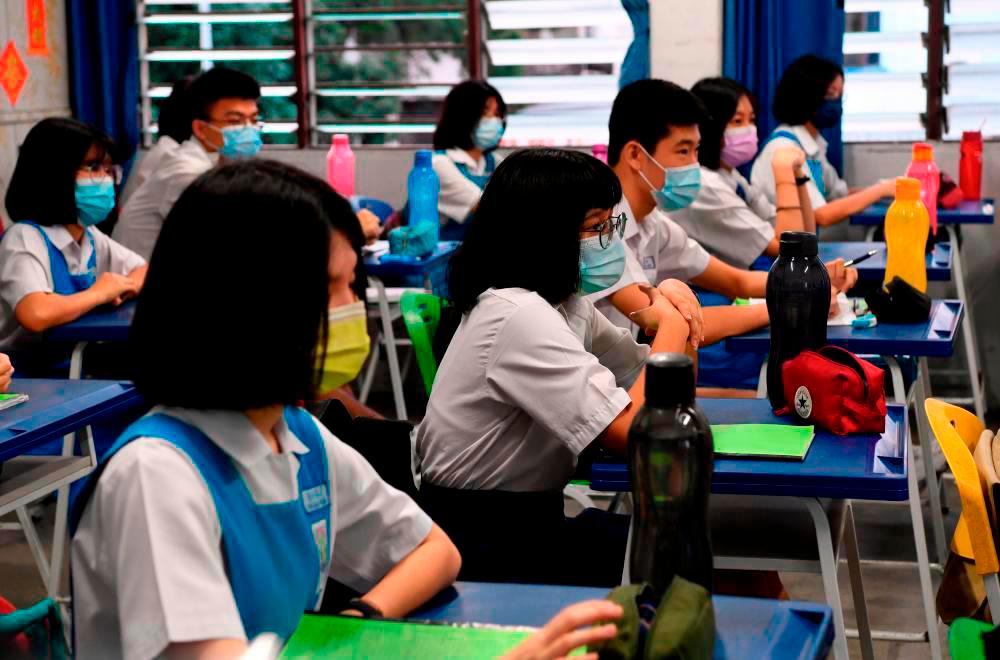IN the recently tabled Budget 2023, the rakyat was expecting a change in distribution for many sectors, and as usual, the Education Ministry received one of the biggest allotments, a weighty RM55.6 billion compared with RM52.6 billion in the previous year.
Due to the Covid-19 pandemic, lockdowns resulted in the closure of schools, education and higher education institutions. Learning and teaching had to be delivered from in-person to online, thus realising the need for digitalised education. Although there was no specific allotment for educators to purchase electronic devices, at least RM2.3 billion has been allotted to ensure students have a conducive and safe learning environment.
The increase in Rancangan Makanan Tambahan per student from RM2.50 to RM3.50 for the Peninsular and RM3 to RM4 for Sabah, Sarawak and Labuan is well lauded. As many students are deprived of food of nutritional value, this is a great initiative to support the growth of our young in their endeavour to study.
The allocation of RM3.8 billion for scholarships and bursaries, which are to be channelled either to public or private institutions is also commendable. The intention to subsidise the poor and underprivileged communities to pursue education is a great way to invest in our children’s future and revitalise the local education segment.
However, the government needs to recognise the importance of private education contributing to capacity building, thus it should also receive more allocations.
As there are limited seats in public universities for popular, competitive and future education-related courses, the government should understand the crucial role of private institutions in filling the gap between supply and demand. Therefore, scholarships should be allocated to private universities and colleges as these institutions do not receive subsidies, thus giving options to the poor and underprivileged to pursue their tertiary studies in private education institutions.
It is also great to note that the Finance Ministry has allocated RM6.7 billion for driving the technical and vocational education and training (TVET) initiatives through the National TVET Council.
Citing a recent report by the Department of Statistics, 72.1% of Malaysians are not keen to pursue higher education after sitting for the Sijil Pelajaran Malaysia examination. There are, of course, many factors why these students have lost interest in furthering their education, which is because of namely financial and pandemic woes.
TVET can be considered the next best choice of higher education for some these students. Students will be able to gain useful skills to work in blue-collar sectors, particularly the manufacturing and services industry, which are lacking skilled workers.
The cash handouts to be distributed via e-wallet to youths aged 19 and 20 years old, and full time students aged 21 and above is laudable. The sum may not be much, considering that prices of goods and services are relatively high these days, but the cash handouts will come in handy to purchase necessities like school paraphernalia.
Similarly, the early schooling aid of RM150, which will be helpful for underprivileged families, is now given to all regardless of income bracket. This money can also be used to purchase new uniforms, books or even stationeries.
To current students who have received loans and bursaries via PTPTN (National Higher Education Fund Corporation), the exemption for all borrowers who graduate with a first-class bachelor’s degree is a good initiative. However, meritocracy should be practised for the exemption to apply, with a proper loan dispensing mechanism in place. The Fund should be specifically reserved for underprivileged students.
Overall, there were not many changes to the education budget, but the government should continuously review the education system from primary to tertiary levels for the betterment of future generations.
Ryan P. Abraham
Lecturer in Professional Accounting
Methodist College Kuala Lumpur










